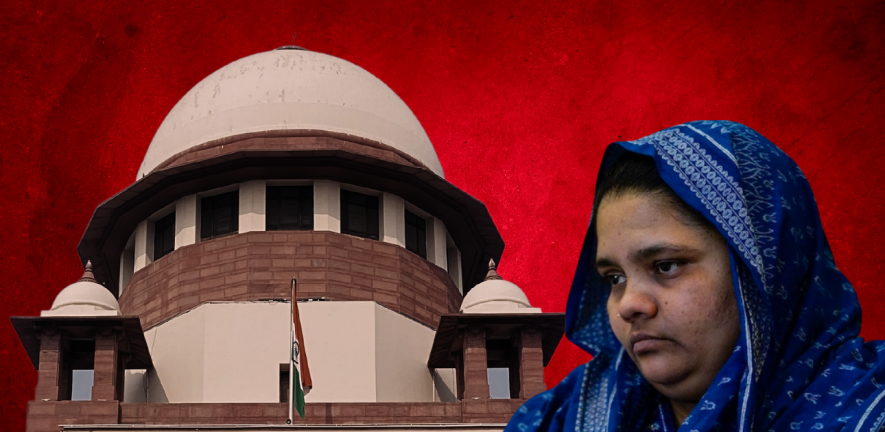Supreme Court Unveils Deceptive Tactics in Obtaining Judgment Mandating Gujarat Government to Consider Remission, Deeming It in Violation of Legal Standards.
Case Title: Bilkis Yakub Rasool v. Union of India & Ors.
Case No: Writ Petition (Criminal) No. 491 of 2022
Decided on: 8th January, 2024
CORAM: THE HON’BLE MR. JUSTICE B.V. NAGARATHNA AND HON’BLE MR. JUSTICE UJJAL BHUYAN
Facts of the Case
In 2002, Bano, aged 21 and five months pregnant, experienced a brutal gang rape in the Dahod district of Gujarat amid the post-Godhra communal riots. Rioters also killed seven of her family members, including her three-year-old daughter. In 2008, the trial was moved to Maharashtra, where a Mumbai Sessions Court convicted the accused under relevant sections of the Indian Penal Code, sentencing them to life imprisonment. The Bombay High Court, in 2017, affirmed the convictions and life sentences for the 11 individuals involved.
After spending 15 years behind bars, Radheshyam Shah, one of the convicts, sought remission of his sentence from the Gujarat High Court. However, the High Court rejected the plea, citing lack of jurisdiction. The matter then reached the Apex Court, which ruled that the Gujarat Government should decide on the remission application since the crime occurred within the state. In accordance with the remission policy, the State Government released the convicts in 2022.
Disheartened by this decision, Bilkis Bano approached the Supreme Court to contest the premature release of the 11 convicts.
Issue
Whether the premature release of the 11 convicts was justifiable?
Court’s analysis and decision
The Supreme Court overturned the premature release of eleven life convicts in the Bilkis Bano case, declaring its May 2022 judgment instructing the Gujarat Government to review the remission applications as null and void. The decision was based on the finding that the petitioner, Radheshyam Shah, one of the convicts, had engaged in fraudulent conduct by withholding crucial information and providing deceptive statements.
Justices BV Nagarathna and Ujjal Bhuyan, comprising the bench, highlighted that the May 2022 directive stemmed from a writ petition filed by Shah, who had suppressed significant facts, including a prior ruling by the Gujarat High Court and the presiding judge’s opinion. The bench, after months of hearings, was informed that Shah initially sought direction from the Gujarat High Court for the State of Gujarat to consider his remission plea. However, the high court dismissed his petition, advising him to approach the appropriate government, namely the State of Maharashtra. Despite a second application also being rejected by the Gujarat High Court, Shah’s subsequent actions were deemed fraudulent by the Supreme Court.
The court emphasized that the purpose of punishment is not vengeance but rather prevention and reformation. Drawing inspiration from Plato’s treatise, the court likened the role of a lawgiver to that of a doctor, administering punishment like medicine to benefit the individual being disciplined. According to this curative theory of punishment, if a criminal is deemed curable, the focus should be on education and other appropriate measures to transform them into a better citizen, reducing the burden on the State. This principle forms the core of the remission policy.
The court further emphasized the inherent respect owed to women, regardless of their social standing, faith, or creed. It questioned whether heinous crimes against women should allow for remission, raising crucial ethical considerations. The Supreme Court nullified the remission of 11 convicts, asserting that the State of Gujarat lacked authority to decide on remission since the trial occurred in the State of Maharashtra. Consequently, the court directed the released convicts to surrender in prison within two weeks, overturning their premature release granted in August 2022.
“PRIME LEGAL is a full-service law firm that has won a National Award and has more than 20 years of experience in an array of sectors and practice areas. Prime legal fall into a category of best law firm, best lawyer, best family lawyer, best divorce lawyer, best divorce law firm, best criminal lawyer, best criminal law firm, best consumer lawyer, best civil lawyer.”
Written by- Afshan Ahmad


